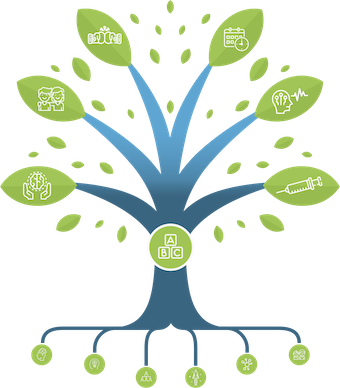I take medications quite often to treat my headaches. Is this a problem?
Overusing headache medication is a frequent issue and can become a problem in many patients. It may overtime make headaches worse and the medication which you are taking may be less effective in controlling your pain.
The term for this condition is called ‘medication overuse headache”(MOH). This condition occurs when the medications taken to relieve the headaches are taken too frequently, they begin to contribute to this chronic headache syndrome.
This typically occurs in patients with migraine headaches who begin with episodic migraine, the frequency increases as does their medication intake and eventually the headaches become chronic.
This condition has been described with most of the pain relieving headache medications including the following;
Pain relievers; ASA, anti-inflammatories (ibuprofen, naproxen), tylenol
Triptans; migraine specific medications like imitrex for example.
Combination analgesics; tylenol, ASA+caffeine, Fiorinal, Tecnal
Opioids; narcotics, codeine
Ergots : ergotamine
MOH can occur when ergots, triptans, opioids and combination drugs are taken more than 10 days per month for more than three months.
Simple analgesics can cause MOH after 15 or more days for more than three months.
As a rule of thumb, if you need to take something for your headache on more than 2 days per week or more than 10 days per month on a regular basis, you are at risk.
Other risks in addition to MOH should be considered when overusing these medications such as gastric bleeding with ASA and antiinflammatories and potential liver damage with tylenol overuse. The use of narcotics may cause constipation, apathy, and addiction.
Once MOH has occurred it can be very difficult to treat. Withdrawal of the overused drug is not always easy. Therefore the best treatment is prevention.
Follow these suggestions if you think you may be overusing your headache medications:
1. Keep a diary of your headache frequency and medication intake for the next three months and review at your next doctors appointment
2. When you start to get a headache consider using alternative treatments such as relaxation, biofeedback, tiger balm, ointments etc.
3. Consider and discuss alternative medication that may be more effective if you are taking repeated doses of your medication. It may not be the most effective for you.
4. If your headaches are occuring more than once a week and your medication is not working speak to your doctor about the option of a preventative medication for your headaches.
Categories
THE MIGRAINE TREE
- BRANCHES
- ACUTE TREATMENTS
- DEVICES AND NEUROMULATIOIN
- PREVENTIVE TREATMENTS
- PROCEDURES AND INJECTIONS
- SELF-CARE AND LIFESTYLE
- SOCIAL LIFE
- TRUNK
- ROOTS
OTHER CATEGORIES




